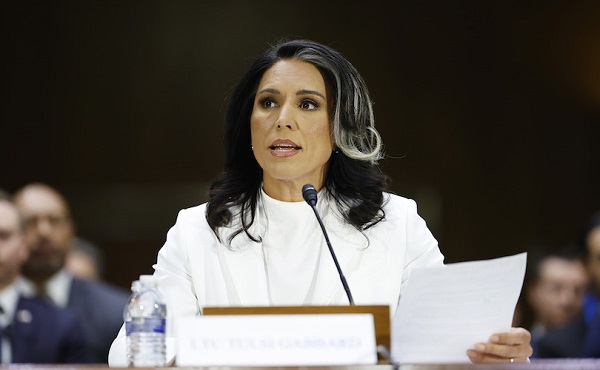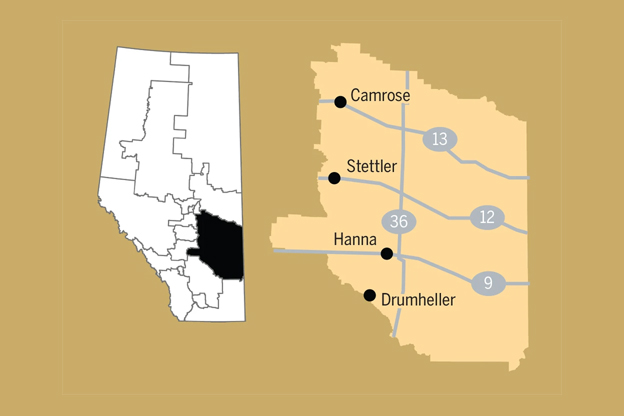Uncategorized
Withdraw Kavanaugh nomination? ‘Ridiculous,’ says Trump

WASHINGTON — President Donald Trump sided with his embattled Supreme Court nominee, defending Judge Brett Kavanaugh against allegations of sexual assault as the White House walked a fine line in addressing accusations that revived memories of the president’s own #MeToo moments. Time and again, Trump has defended powerful men against the claims of women.
The president dismissed any notion that Kavanaugh’s nomination should be withdrawn, calling that a “ridiculous question” while accusing Democrats of playing politics by not zeroing in on the accusation against the judge until days before the Senate Judiciary Committee was poised to vote on his nomination.
“He’s an outstanding intellect. An outstanding judge. Respected by everybody. Never even had a little blemish on his record,” Trump told reporters at the White House on Monday.
But Trump’s
“I’d like to see a complete process. … I want him to go in at the absolute highest level. And I think to do that you have to go through this. If it takes a little delay, it’ll take a little delay,” the president said.
“They’ll go through a process and hear everybody out. I think it’s important,” Trump continued. “But with all of that being said, it will, I’m sure, work out very well.”
Trump’s somewhat muted response underscored the politically perilous situation the White House found itself in.
Kavanaugh’s nomination had seemed to be on a glide path until Christine Blasey Ford, a psychology professor at Palo Alto University in California, said Sunday that Kavanaugh had sexually assaulted her at a drunken high school party in the 1980s. Kavanaugh denied the allegation.
Both were invited to testify about the matter before the committee next Monday, which could create a made-for-TV spectacle that Republican leaders had hoped to avoid.
White House aides met behind closed doors cognizant of two realities: that scuttling the Kavanaugh nomination and finding a replacement would likely postpone confirmation hearings until after what could be a difficult midterm election, while pushing back too hard in his
Until he spoke Monday afternoon, Trump had stayed out of sight as the allegations swirled. He received closed-door updates on Hurricane Florence while tweeting about supposed FBI conspiracies against him and wishing the nation a happy Constitution Day.
The White House tone for the day was set by one of the administration’s few high-ranking female voices, Kellyanne Conway, who said Ford’s voice should be heard.
“She should not be insulted. She should not be ignored. She should testify under oath, and she should do it on Capitol Hill,” said Conway, a senior White House adviser.
Still, the administration continued to push forward the nomination and summoned Kavanaugh to the White House, where he spent time with White House counsel Don McGahn and other aides.
Trump’s advisers both inside and outside the White House urged the president not to attack Kavanaugh’s accuser, fearful of repercussions among the electorate.
The president has not always shown that restraint. His campaign was nearly derailed in October 2016 when a video from TV’s “Access Hollywood” emerged that captured him boasting about groping women. After a reluctant apology, Trump returned to denying any wrongdoing, dismissing more than a dozen women who accused of him of sexual misconduct, including mocking some of them for not being attractive enough for him to seduce.
Days later, at a surprise news conference ahead of a presidential debate in St. Louis, Trump showed a willingness to support allegations against others, appearing with four women who accused former President Bill Clinton, the husband of Trump’s opponent, of sexual misconduct.
Even as the #MeToo movement gained steam, giving a voice to women who said they were abused by powerful men, the White House has steadily denied accusations against the president. Trump has frequently voiced support for men who faced accusations.
He backed longtime friend Roger Ailes, the Fox News executive accused of misconduct by more than two dozen women, and later hired Ailes’ onetime aide Bill Shine to be his White House communications director. He publicly defended Rob Porter, an aide who resigned after his two ex-wives accused him of spousal abuse. And he backed Alabama Senate candidate Roy Moore despite accusations that Moore pursued relationships with underage women. All three men denied the allegations.
“Peoples lives are being shattered and destroyed by a mere allegation,” Trump wrote on Twitter in February. “Some are true and some are false. Some are old and some are new. There is no recovery for someone falsely accused — life and career are gone. Is there no such thing any longer as Due Process?”
___
Lemire reported from New York. Associated Press writers Ken Thomas in Washington and Zeke Miller in Palo Alto, California, contributed to this report.
___
Follow Lemire on Twitter at http://twitter.com/@JonLemire and Lucey at http://twitter.com/@catherine_lucey
Jonathan Lemire And Catherine Lucey, The Associated Press
Uncategorized
Poilievre on 2025 Election Interference – Carney sill hasn’t fired Liberal MP in Chinese election interference scandal

From Conservative Party Communications
“Yes. He must be disqualified. I find it incredible that Mark Carney would allow someone to run for his party that called for a Canadian citizen to be handed over to a foreign government on a bounty, a foreign government that would almost certainly execute that Canadian citizen.
“Think about that for a second. We have a Liberal MP saying that a Canadian citizen should be handed over to a foreign dictatorship to get a bounty so that that citizen could be murdered. And Mark Carney says he should stay on as a candidate. What does that say about whether Mark Carney would protect Canadians?
“Mark Carney is deeply conflicted. Just in November, he went to Beijing and secured a quarter-billion-dollar loan for his company from a state-owned Chinese bank. He’s deeply compromised, and he will never stand up for Canada against any foreign regime. It is another reason why Mr. Carney must show us all his assets, all the money he owes, all the money that his companies owe to foreign hostile regimes. And this story might not be entirely the story of the bounty, and a Liberal MP calling for a Canadian to be handed over for execution to a foreign government might not be something that the everyday Canadian can relate to because it’s so outrageous. But I ask you this, if Mark Carney would allow his Liberal MP to make a comment like this, when would he ever protect Canada or Canadians against foreign hostility?
“He has never put Canada first, and that’s why we cannot have a fourth Liberal term. After the Lost Liberal Decade, our country is a playground for foreign interference. Our economy is weaker than ever before. Our people more divided. We need a change to put Canada first with a new government that will stand up for the security and economy of our citizens and take back control of our destiny. Let’s bring it home.”
Uncategorized
Canada Needs A Real Plan To Compete Globally

From the Frontier Centre for Public Policy
Ottawa’s ideological policies have left Canada vulnerable. Strategic action is needed now
As Canada navigates an increasingly complex geopolitical landscape, the next federal government must move beyond reflexive anti—Americanism regardless of its political leanings. Instead, Canada should prioritize national interests while avoiding unnecessary conflict and subservience.
The notion that Canada can stand alone is as misguided as the idea that it is only an economic appendage of the United States. Both perspectives have influenced policy in Ottawa at different times, leading to mistakes.
Rather than engaging in futile name-calling or trade disputes, Canada must take strategic steps to reinforce its autonomy. This approach requires a pragmatic view rooted in Realpolitik—recognizing global realities, mitigating risks, governing for the whole country, and seizing opportunities while abandoning failed ideologies.
However, if Washington continues to pursue protectionist measures, Canada must find effective ways to counteract the weakened position Ottawa has placed the country in over the past decade.
One key strategy is diversifying trade relationships, notably by expanding economic ties with emerging markets such as India and Southeast Asia. This will require repairing Canada’s strained relationship with India and regaining political respect in China.
Unlike past Liberal trade missions, which often prioritized ideological talking points over substance, Canada must negotiate deals that protect domestic industries rather than turning summits into platforms for moral posturing.
A more effective approach would be strengthening partnerships with countries that value Canadian resources instead of vilifying them under misguided environmental policies. Expand LNG exports to Europe and Asia and leverage Canada’s critical minerals sector to establish reciprocal supply chains with non-Western economies, reducing economic reliance on the U.S.
Decades of complacency have left Canada vulnerable to American influence over its resource sector. Foreign-funded environmental groups have weakened domestic energy production, handing U.S. industries a strategic advantage. Ottawa must counter this by ensuring Canadian energy is developed at home rather than allowing suppressed domestic production to benefit foreign competitors.
Likewise, a robust industrial policy—prioritizing mining, manufacturing, and agricultural resilience—could reduce dependence on U.S. and Chinese imports. This does not mean adopting European-style subsidies but rather eliminating excessive regulations that make Canadian businesses uncompetitive, including costly domestic carbon tariffs.
Another key vulnerability is Canada’s growing military dependence on the U.S. through NORAD and NATO. While alliances are essential, decades of underfunding and neglect have turned the Canadian Armed Forces into little more than a symbolic force. Canada must learn self-reliance and commit to serious investment in defence.
Increasing defence spending—not to meet NATO targets but to build deterrence—is essential. Ottawa must reform its outdated procurement processes and develop a domestic defence manufacturing base, reducing reliance on foreign arms deals.
Canada’s vast Arctic is also at risk. Without continued investment in northern sovereignty, Ottawa may find itself locked out of its own backyard by more assertive global powers.
For too long, Canada has relied on an economic model that prioritizes federal redistribution over wealth creation and productivity. A competitive tax regime—one that attracts investment instead of punishing success—is essential.
A capital gains tax hike might satisfy activists in Toronto, but it does little to attract investments and encourage economic growth. Likewise, Ottawa must abandon ideological green policies that threaten agri-food production, whether by overregulating farmers or ranchers. At the same time, it must address inefficiencies in supply management once and for all. Canada must be able to feed a growing world without unnecessary bureaucratic obstacles.
Ottawa must also create an environment where businesses can innovate and grow without excessive regulatory burdens. This includes eliminating interprovincial trade barriers that stifle commerce.
Similarly, Canada’s tech sector, long hindered by predatory regulations, should be freed from excessive government interference. Instead of suffocating innovation with compliance mandates, Ottawa should focus on deregulation while implementing stronger security measures for foreign tech firms operating in Canada.
Perhaps Ottawa’s greatest mistake is its knee-jerk reactions to American policies, made without a coherent long-term strategy. Performative trade disputes with Washington and symbolic grandstanding in multilateral organizations do little to advance Canada’s interests.
Instead of reacting emotionally, Canada must take proactive steps to secure its economic, resource, and defence future. That is the role of a responsible government.
History’s best strategists understood that one should never fight an opponent’s war but instead dictate the terms of engagement. Canada’s future does not depend on reacting to Washington’s policies—these are calculated strategies, not whims. Instead, Canada’s success will be determined by its ability to act in the interests of citizens in all regions of the country, and seeing the world as it is rather than how ideological narratives wish it to be.
Marco Navarro-Génie is the vice president of research at the Frontier Centre for Public Policy. With Barry Cooper, he is co-author of Canada’s COVID: The Story of a Pandemic Moral Panic (2023).
-

 COVID-192 days ago
COVID-192 days agoStudy finds nearly half of ‘COVID deaths’ had no link to virus
-

 Alberta2 days ago
Alberta2 days agoCharges laid in record cocaine seizure
-

 2025 Federal Election1 day ago
2025 Federal Election1 day agoCarney says Liberals won’t make voting pact with NDP
-
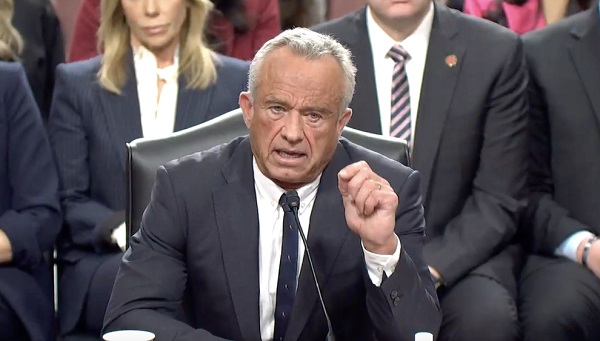
 Autism1 day ago
Autism1 day agoNIH, CMS partner on autism research
-
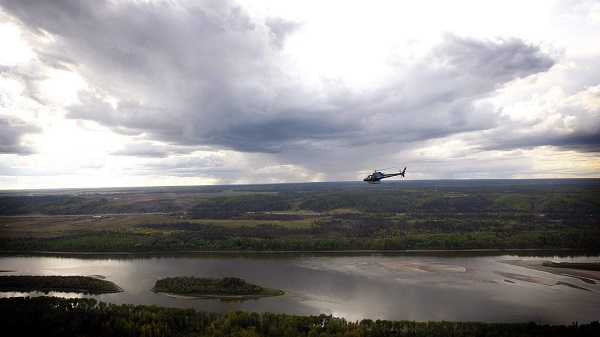
 Alberta2 days ago
Alberta2 days agoEnergy projects occupy less than three per cent of Alberta’s oil sands region, report says
-

 Energy2 days ago
Energy2 days agoOil tankers in Vancouver are loading plenty, but they can load even more
-

 International2 days ago
International2 days agoIce Surprises – Arctic and Antarctic Ice Sheets Are Stabilizing and Growing
-
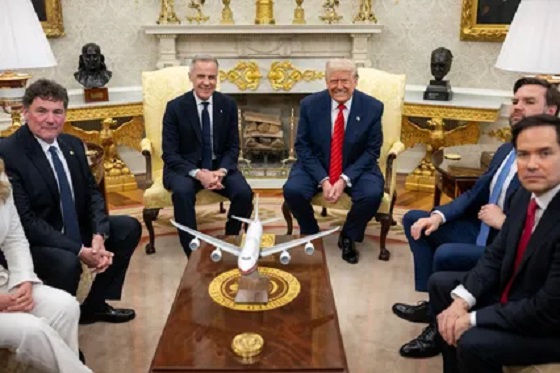
 conflict2 days ago
conflict2 days agoWATCH: U.S. ending bombing campaign on Yemeni militant group
